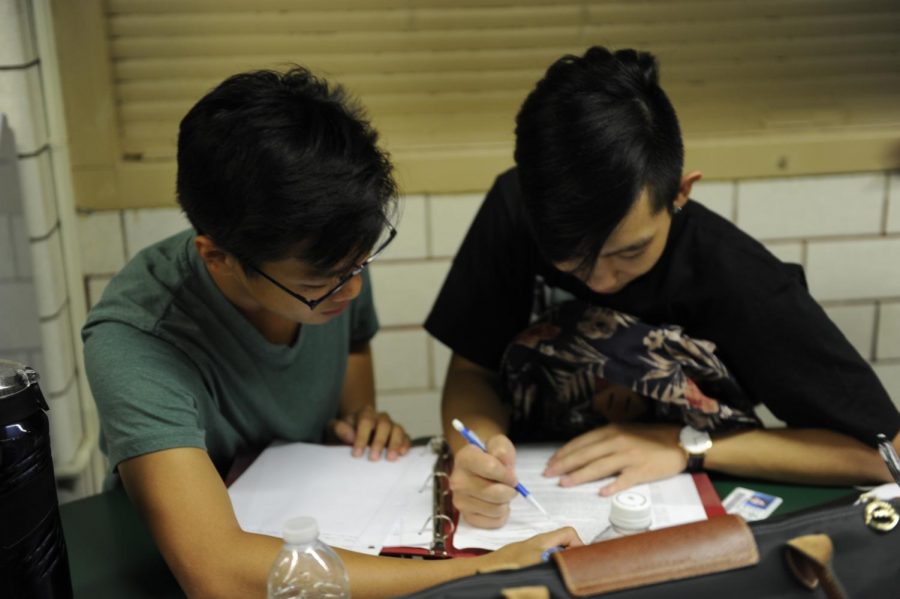Power Shift
Dongren Deng ’18 and Benjamin Chen ’18 study for an upcoming test. “I trust that De Blasio will do all that he can to make school more family friendly,” said Chen.
This past June, the lives of thousands of NYC families changed drastically. Before 2002, control of New York City Public Schools was in the hands of the Board of Education which led to inconsistent decisions, creating an inefficient system that failed to put the interests of students first. In 2002, Mayor Bloomberg achieved control of the Department of Education. Now, Mayor Bill De Blasio looks to create a system as he has reinstated control of public schools.
Before Bloomberg got control, a 32-person committee and the Board of Education controlled all city public schools. The only way a mayor could influence schools under this policy was by adjusting the budget to what they deemed fit.
New York now has an appointed school board in which the mayor controls eight of the thirteen members. The mayor’s appointees vote in accordance with his wishes.
“Under Mayor Bloomberg… cell phones were banned from schools… Mayoral control made it so De Blasio could reverse this policy without checks or balances.”
There are several ways in which mayoral control impacts students and parents. Generally, school boards will follow the desires of the elected members or education experts, typically parents, teachers and leaders in the community. Under Mayor Bloomberg, for example, cell phones were banned from schools despite strenuous objections from parents and students. The reality was that the policy was only enforced in schools with permanent metal detectors. Mayoral control made it so De Blasio could reverse this policy without checks or balances.
For years, community school boards held authority over local elementary and middle schools, with the Chancellor and Board of Education administering the high schools. But in 1996, an investigation led to the conclusion that there was a lot of inherent inefficiency within the school system.
Mayoral control can be detrimental to both the experiences and education of students and their parents. “In New York City, the mayors have made decisions on a more political basis. For example, there’s a consensus that retaining students solely on the basis of not passing a standardized test is wrong. However, Mayor Bloomberg implemented this policy across 3rd, 5th and 8th grades resulting in many students who did not receive the support they needed,” said Patrick Sullivan, a member of the Panel For Educational Policy from 2007-2013.
It is clear that Mayoral control over the school system has had a profound impact upon the student community, but at this point it is hard to tell what the future will hold with De Blasio in control of New York City public schools.











